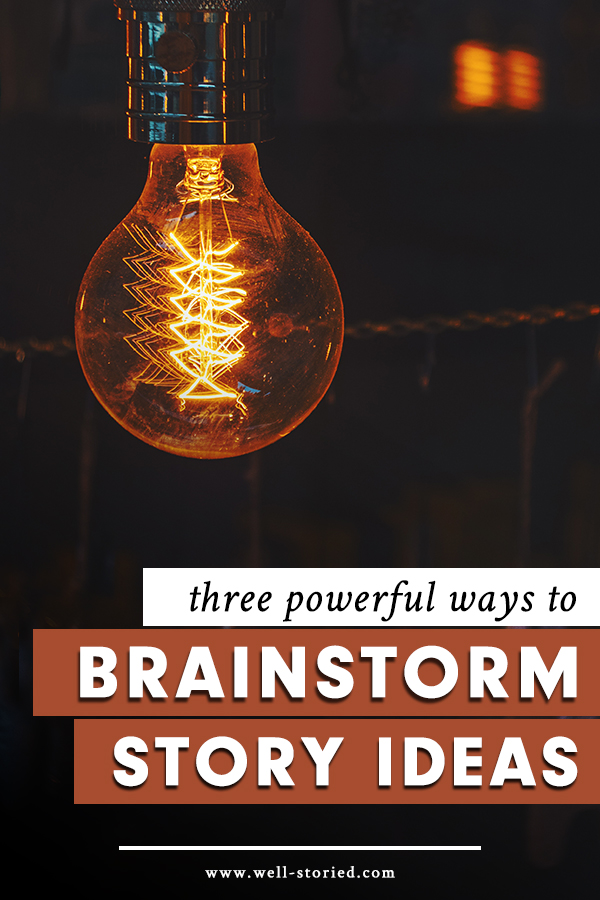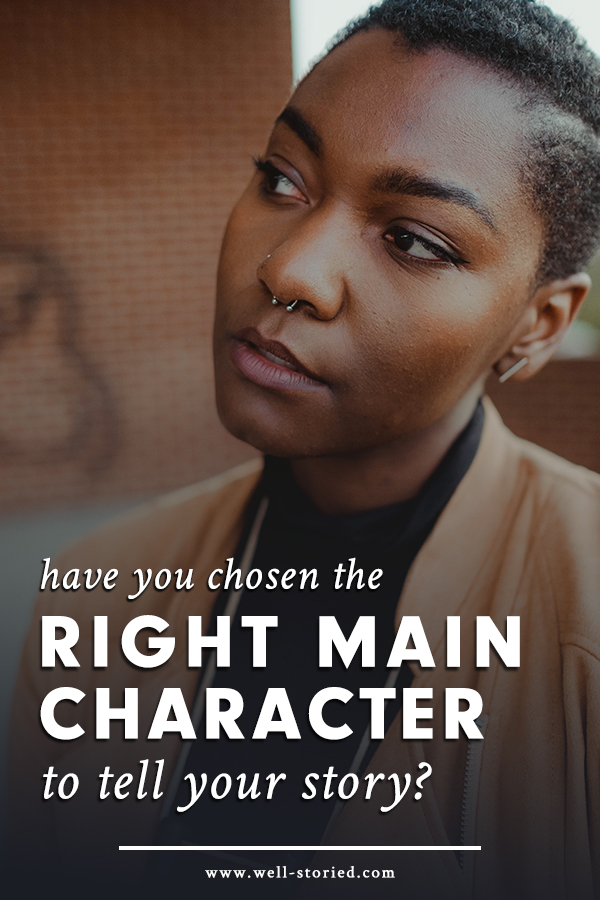Blog
How to Decide Which Exciting Story Idea to Write Next
Have a hundred thrilling story ideas rumbling around in your brain?
Choosing which of those many ideas to write next can seem impossible — especially when you’re of unsure which idea best aligns with your aims and abilities as a writer — but have no fear! Today, we're going to cut through option overwhelm by discussing the tips and tricks that can provide clarity as you decide which exciting story idea to write next.
Three Powerful Ways to Brainstorm New Story Ideas
Brainstorming new story ideas isn't always the easiest task in the world. Often, it seems the longer you work to devise the concept for your next great novel, the more impossible the struggle becomes. So, how can you overcome the overwhelm and begin generating narratives like the ultra-imaginative writer you long to be?
Today, I'm sharing three powerful brainstorming methods that make the process of digging up new story ideas seem less like a headache and more like the romp through your creative playground it ought to be. So let's go, writers. It's time to play!
Finding the Novel Outlining Process that Works for You
There’s nothing more nebulous than trying to produce a decent outline for your novel.
With dozens of outlining methods to choose from, all of which seem to work well for some writers but not for others, defining the outlining process that works best for you and your stories can be more than a little intimidating. How much detail do you need to include? Is outlining really necessary? Isn't there a better way?
Writers, it's time to cut through the chaos and get down to business. Let's find the outlining method that works best for each of us in today's breakdown!
Asking Yourself These 5 Question Can Help You Write Better First Drafts
When I speak of writing amazing first drafts, I don’t mean to imply that you’ll ever write a first draft that isn’t in need of revision. That’s not at all how they’re meant to work.
You see, first drafts are famously shitty — all of them — and they're meant to be. They're called rough drafts for a reason after all. That's why I like to think of writing first drafts as a mining process. I dig deep into the dark caverns of my mind to dredge up the gems of a story that will later be cleaned, cut, refined, and set into something truly beautiful.
So what qualifies a first draft as amazing if you are, in actuality, getting your hands dirty as you write? And what in the world do you need to ask yourself if you want to write amazing first drafts of your own? Let's dig into today's article, writer!
How to Define Your Character's Unique Voice
To create characters as real as the people around us, we must remember to forge for them their own unique voices.
With individual personalities, cultural influences, experiences, and world views, its no wonder people verbally interact with the world in different ways, and so our characters should as well. Doing so not only helps to distinguish them from the other characters in our stories, but to add depth and realism to their characterization.
But how do you go about defining your characters’ unique voices? The process is admittedly a bit lengthy, but I promise it will prove well worth your time when your characters’ voices leap off the page truly and fully defined. Sound like a plan? Let’s get started with today's breakdown, writer!
Free E-Course: How to Plot a Novel Using the 3-Act Story Structure
Are you ready to discover the foundations of strong storytelling?
Behind every well-written story is structure: story structure. The most popular of which is, perhaps, the 3-Act Story Structure, which seamlessly intertwines both plot and character arcs to help writers craft linear stories with purpose and power. We've discussed the 3-Act Story Structure at some length here on the blog, but today I'm excited to make an announcement...
I've teamed up with the folks at Reedsy to create a free ten-lesson email course on the 3-Act Story Structure that will help you nail down the foundations of strong structure one tip-packed lesson at a time!
Have You Chosen the Right Main Character to Tell Your Story?
Main characters can make or break a story’s success.
Oftentimes, the doubts we face as we work to bring our main characters to life can seem endless. Are our protagonists’ well-rounded enough? Are they interesting? Will readers root for them to achieve their goal?
Choosing the right main character to carry the weight of your story is absolutely vital, but knowing whether you’ve selected the perfect protagonist can be tricky—or is it? Truth is: knowing you’ve chosen the right main character for your story doesn’t have to be complicated. Here’s why…
How to Frame Scenes Like a Filmmaker
Have you ever thought about writing fiction with filmmaking in mind?
This certainly isn’t a concept I originated. Rather, I recently rediscovered it after reading Diana Gabaldon’s I Give You My Body, her guide to writing intimate scenes, in which she discusses framing the scenes in her books as though she were shooting a film.
Having taken a few communications classes in my day—all of which involved a good bit of camera work—the idea of framing scenes with filmmaking in mind is advice that I not only find interesting, but believe may be vastly helpful to many writers looking to improve their craft. Sound like something you’d enjoy? Let’s kick off today’s discussion!
Outline Your Novel With the 3-Act Story Structure
Are you ready to take the overwhelm out of outlining your novel?
Transforming a new story idea or a shapeless first draft into a spectacular full-length book is more than a little difficult. There are endless elements at play: plot arcs, character arcs, stakes, themes, pacing... It's no wonder many writers struggle to give life to the stories in their heads.
Fortunately, giving shape to your story doesn't have to be as difficult as it may seem. You can craft a strong blueprint for your novel with ease by making good use of a little tool called story structure.
Is a Daily Writing Routine Right for You?
“Real writers write every day.”
Unfortunately, that’s a sentiment you’ll often hear in the writing world, and for a time, I subscribed to it myself. And while I still maintain a daily writing routine, I regret the days I spent telling other writers they should to do the same.
Every writer’s process is unique, and what works for one—or even many—isn’t guaranteed to work for you. And that’s okay! The important thing is to find the writing techniques that work best with your time, your skills, and your stories. Unsure if a daily writing routine would be a good fit for your writing process?
Allow me to share the pros and cons of my own experience with a daily writing routine today!
How to Create Strong Pacing For Your Story
Books are a bit like amusement park rides.
They come in all shapes and sizes and even levels of thrill, with enough variation that there are few who don’t enjoy any sort of ride at all. But there is one element that all rides must have if they're to succeed: an expectation of pace.
Fast rides fly. Slow rides meander. But it’s rare that a ride will catapult between high and low speeds until the rider begs to be removed. Why? Well, the intense change in pacing would leave most riders bewildered—and likely a bit nauseated, too.
The same goes for stories that lack consistent pacing. So let's avoid bewildering, and perhaps even nauseating, our readers, shall we? Buckle up, writers. We’re about to go for a ride!
The Four Main Types of Epic Antagonists
Every story needs a good villain, right? Well, not so fast…
Stories need conflict, certainly, but conflict doesn't have to come at the hands of a cackling, mustache-twirling supervillain. There's more than one way to shape your story's antagonist!
In fact, there are four main types of antagonists that appear in fiction, and I can't wait to break them all down with you today. Which type of antagonist is best for your story? How can you make each type a true stand-out success? Read on for more, my friend.











